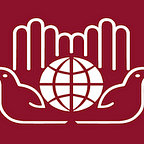Humanitarians and Designers Imagine a New Future at the First Design for Humanity Summit in New York City
New York — The Institute of International Humanitarian Affairs (IIHA) launched the Design for Humanity Initiative at the first Design for Humanity Summit at Fordham University in New York City on June 22, 2018.
In partnership with the The UN Migration Agency (IOM), the Summit explored how the intersection between design and humanitarian action can compel a more dignified, inclusive, and sustainable humanitarian response.
More than 40 presenters from the design, humanitarian and academic communities as well as the private sector sat on panel discussions or delivered breakout sessions. An overflowing audience of more than 300 people were in attendance, some of whom had traveled from as far away as Europe and Asia to participate.
“Design for Humanity is one of five key research areas for the Institute and we believe it will have an impact on current thinking and practices of the humanitarian sector. We seek to galvanize the diverse expertise of those working at this intersection through a multi-year Design for Humanity Initiative and Lab which will include future events, research, publications, and collaborative projects,” said Brendan Cahill, the Executive Director of the Institute of International Humanitarian Affairs.
The Permanent Representative of Ireland to the United Nations, Ambassador Geraldine Byrne Nason, commended the Irish Mission’s partnership with the IIHA in her welcoming remarks.
“Ireland’s partnership with Fordham is a natural one. Ireland’s own harrowing history of famine, mass migration and our struggle for independence and peace form the cornerstone of our identity. We believe nothing is wholly foreign or entirely domestic. The humanitarian response is at the heart of that instinct and informs the way we work every day at the UN. We are determined to leave no one behind, reaching the furthest behind first,” said the Ambassador.
The Permanent Mission of Ireland to the UN, the Center for International Humanitarian Cooperation, and IOM served as critical supporters for the Design for Humanity Summit.
“We see great potential in deepening the nexus between the commitment and ethical framework of humanitarian actors with emphasis on innovation and participatory approaches to design and contextualization,” said Ashraf El Nour, Director of the IOM office in New York in his opening remarks at the Design for Humanity Summit.
In his keynote address, Randy Fiser, CEO of the American Society of Interior Design, spoke to the power of holistic solutions and the partnerships between the design and humanitarian communities:
“(Designers work) collectively with the community that we are serving and hold the things they need and iterating back into bringing solutions. That process coming together with what the humanitarian community does is an amazing and powerful opportunity that we are all about to experience today,” he said.
Panelists and breakout session leaders were comprised of creative humanitarian and design practitioners from Airbnb, the Airbel Center at the International Rescue Committee, ARCHIVE Global, ART WORKS Projects for Human Rights, Asylee Designs, Boston Society of Landscape Architects, de.MO Design, Ennead Lab, Google, the Global Alliance for Urban Crises, Habitat for Humanity International, Ideation Worldwide, IDEO.org, Irish Aid, MASS Design Group, the Museum of Modern Art, Prudential, the UN Migration Agency, and the UN Children’s Fund (UNICEF).
They shared the stage with researchers from leading academic institutions such as Fordham University, Harvard University’s Graduate School of Design, Massachusetts College of Art and Design, Portland State University Center for Public Interest Design, Universitat Internacional de Catalunya School of Architecture, and Université de Montréal.
The Institute of International Humanitarian Affairs believes the way humanitarian programs are designed at the onset lay the groundwork for the quality of life experienced by people affected by crises for years to come. The Design for Humanity Summit sought to bring together innovative designers and humanitarians in order to envision a better future.
Placing dignified and human-centered design at the heart of humanitarian action is, therefore, an essential goal of Design for Humanity, which will continue in the years to come.
The first step will be a Design for Humanity Yearbook and a series of online stories and content that will chronicle the diverse perspectives presented at the Summit. The second Design for Humanity Summit will take place in June 2019. In addition, the IIHA and IOM plan to engage in deeper research projects involving relevant stakeholders in New York and in the field in pursuit of innovative humanitarian design projects around the world.
The Design for Humanity Summit was made possible by the support of the UN Migration Agency, Permanent Mission of Ireland to the United Nations, the Center for International Humanitarian Cooperation and Fordham University. Community partners included the American Society of Interior Designers, ART WORKS Projects for Human Rights, and InterAction
Check out the Design for Humanity Summit Photo Album.
Contact:
Angela Wells
awells14@fordham.edu
IIHA Communications Officer
Co-Curator of the Design for Humanity Summit
Alberto Preato
apreato@fordham.edu
IOM Program Manager
IIHA Humanitarian Design Research Fellow
